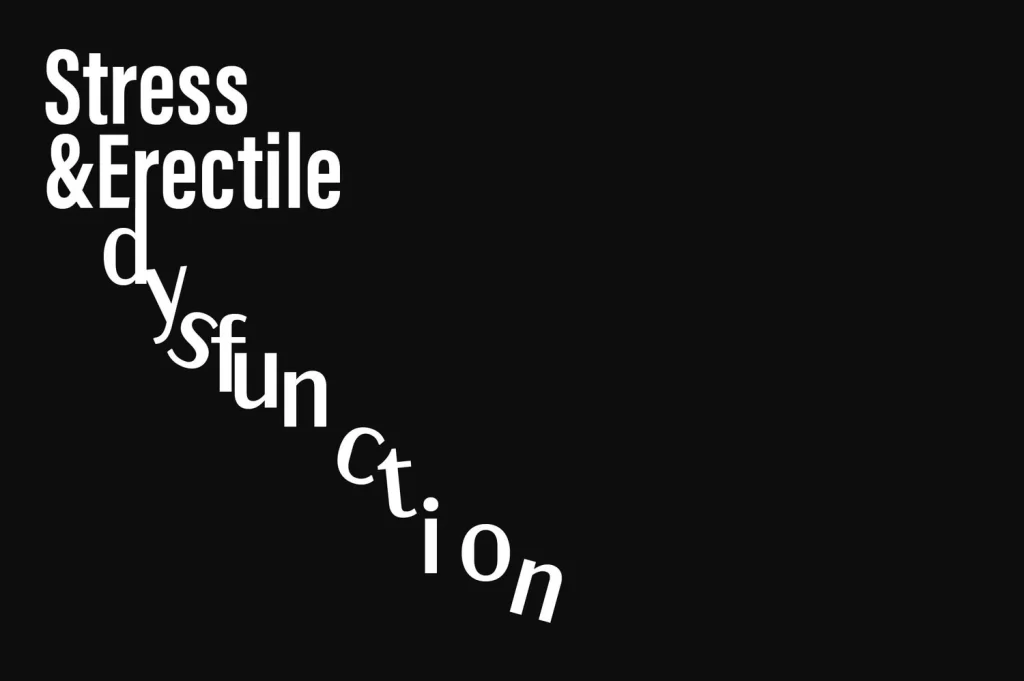Stress and Erectile Dysfunction: Understanding the Link and How to Deal With It

Stress and ED are closely tied and work both ways. Yet another reason to work on your stress management skills.
Erectile dysfunction (ED) is a topic most men would rather avoid, but the truth is, it’s more common than you think. Another truth – talking about it helps understand what’s going on, loosen up, and helps finding solutions for take off. So, let’s talk.
While physical health is often the first thing people associate with ED, stress can be a major silent contributor. We will talk about what ED is, how stress plays a role, some stats, and, most importantly, how you can address it through lifestyle changes and supplementation.
What Is Erectile Dysfunction, and How Common Is It?
Erectile dysfunction is the inability to achieve or maintain an erection firm enough for sexual activity. While it’s normal to have occasional issues, consistent trouble could indicate ED. And you’re not alone if you’re experiencing it. Here are some quick facts:
-
ED Affects Millions: Around 30 million men in the U.S. deal with ED, according to the American Urological Association.
-
Age Matters: While ED becomes more common with age, it’s not exclusive to older men. About 26% of men under 40 also experience it.
-
Stress and Mental Health Are Major Contributors: Studies show that psychological factors like stress, anxiety, and depression are linked to 20% of ED cases.
How Does Stress Cause ED?
Stress triggers a “fight or flight” response in your body, which can wreak havoc on your sexual health. Here’s how it works:
-
Hormonal Disruption: Stress increases cortisol, the body’s primary stress hormone, which can lower testosterone levels. Testosterone is key for libido and erectile function.
-
Reduced Blood Flow: Chronic stress constricts blood vessels, impairing blood flow to the penis—a critical factor for maintaining an erection.
-
Mental Blocks: Anxiety caused by stress can create a negative feedback loop, where fear of ED makes the problem worse.
Other Common Causes of ED
And yes, of course there are other things that can be a factor or a trigger. ED can result from:
-
Physical Health Issues: Diabetes, high blood pressure, heart disease, and obesity can all contribute to ED.
-
Medications: Some prescription drugs for depression, high blood pressure, or pain management list ED as a side effect.
-
Lifestyle Factors: Smoking, excessive alcohol consumption, and lack of exercise can all impair sexual function.
How to Deal With Stress-Related ED
Unfortunately, that section is almost the same as it is with every stress-related unpleasantness – a sustainable way to deal with the stress, before it actually blows your hormones out of proportion. The good news is that stress-related ED is often reversible with the right approach. The bad news – it would require some hard chilling (no pun intended) and some discipline if the below is new to you.
1. Prioritize Stress Management
-
Exercise Regularly: Activities like walking, swimming, or lifting weights release endorphins, which reduce stress and improve circulation.
-
Practice Mindfulness: Meditation, yoga, and breathing exercises can lower cortisol levels and improve mental clarity.
-
Set Boundaries: Learn to say no and create time for relaxation in your schedule.
2. Adopt a Healthier Lifestyle
-
Quit Smoking: Smoking damages blood vessels, worsening ED.
-
Cut Back on Alcohol: Excessive drinking can disrupt hormone levels and impair blood flow.
-
Improve Your Diet: Focus on heart-healthy foods like leafy greens, nuts, whole grains, and fatty fish.
3. Seek Support
-
Talk to a Therapist: Cognitive-behavioral therapy (CBT) can help address the anxiety contributing to ED.
-
Open Up to Your Partner: Communication can reduce performance pressure and foster intimacy.
4. Consider Supplements
-
L-Arginine: This amino acid helps improve blood flow by producing nitric oxide.
-
Tongkat Ali: Known for boosting testosterone and reducing stress, it’s a natural choice for sexual health.
-
Ashwagandha: An adaptogen that reduces cortisol levels and enhances overall energy and mood.
Note: Always consult a healthcare provider before starting any supplement.
Scientific Insights on Stress and ED
-
The Brain-Body Connection: A 2018 study published in the Journal of Sexual Medicine found that men with high stress levels were significantly more likely to experience ED.
-
Stress and Hormones: Research from Harvard Medical School highlights how chronic stress depletes testosterone and impairs erectile function.
-
Lifestyle Changes Work: Studies consistently show that men who adopt healthier lifestyles see marked improvements in both stress levels and ED symptoms.
The Bottom Line
Erectile dysfunction is nothing to be ashamed of— cliché, but it has to be said—it’s a common issue with many solutions. If stress is at the root of your ED, addressing it through lifestyle changes, stress management, and the right supplements can make a big difference. Remember, small steps add up: prioritize your health, communicate openly, and consider professional guidance when needed. And if stress is putting you down in bed, it’s probably doing it elsewhere too, so tackling it should be a priority.

